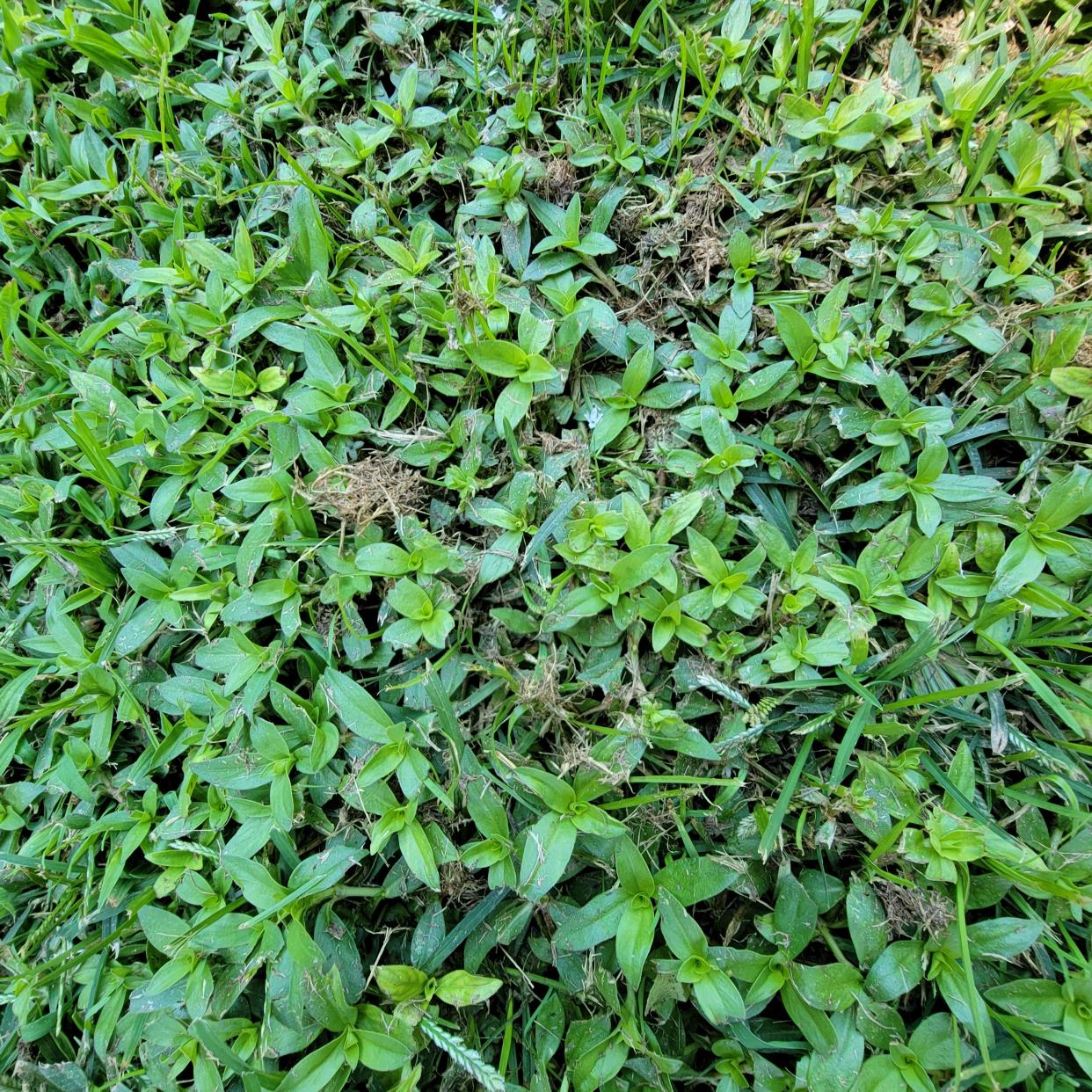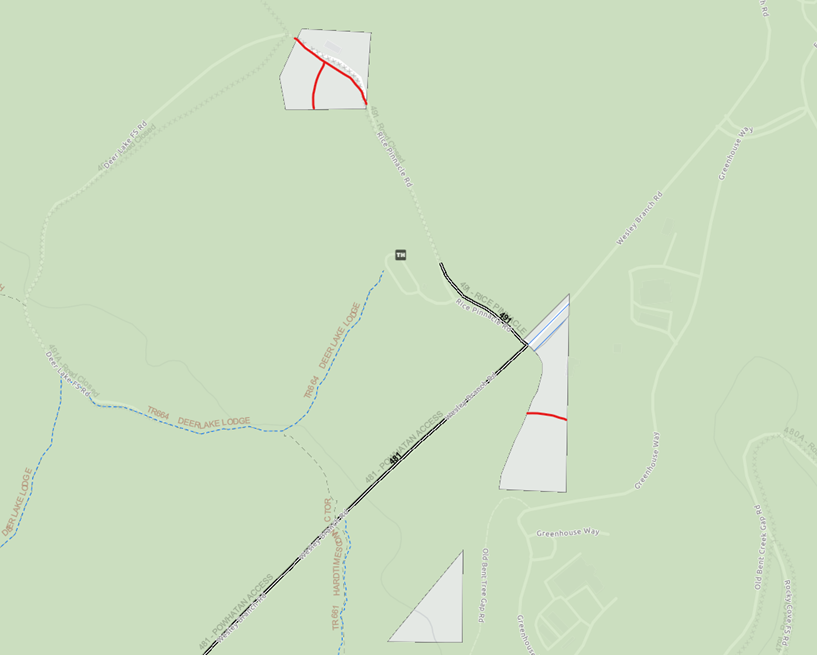Answer Man: Weird plant taking over yard? Houses going up near Arboretum?

Today’s batch of burning questions, my smart-aleck answers and the real deal:
Question: I was out for a run this morning in the Bent Creek area of Pisgah National Forest and noticed two more homes being built off of Rice Pinnacle Road, not too far from the North Carolina Arboretum. There was already another home being built across from the Rice Pinnacle parking lot. The latest two construction sites are actually behind U.S. Forest Service gates, and I was surprised that they are still able to build in there. While I appreciate that our national forests are meant to be mixed-use, I would hate to think there will be a lot of new homes going up in the area that so many of us like to enjoy for recreation. Can you check on this?
My answer: On a positive note, these homes are selling in the "mid-range affordable" territory for Asheville, or $3.5 million each.
Real answer: First off, the U.S. Forest Service is not selling off land for development.
Boyle column: Dog attack in Bent Creek shows even leashed dogs can be trouble
"We hear from a lot of people who don’t realize that there are many privately owned pieces of forest and get upset with us when they see land being cleared for development. It’s not us!" Cathy Dowd, spokesperson for the U.S. Forest Service, said via email. "Ownership of the lands in and around Pisgah National Forest is fragmented – some refer to it as 'crazy-quilt land ownership' because there are privately owned inholdings of various shapes and sizes within the boundaries of national forest system lands."
The U.S. Forest Service works with landowners regarding access, but the service has "no jurisdiction on private property, even if it’s off a Forest Service road or behind a gate.
More Answer Man: Mystery building near Arboretum entrance? Board of Elections keeps moving?
"I think the one being built across from Rice Pinnacle parking lot is a small tract of private land, where the driveway for this new home takes off from Wesley Branch Road (an NCDOT road) and crosses national forest lands to the tract," Dowd said. "They have a farm gate on their driveway. There is also a relatively small private tract behind the Rice Pinnacle gate that recently sold, so they may have started construction on new homes back there."
Dowd noted the area has six parcels divided into three inholdings.

Question: Kudzu may be the plant that ate the South, but I have a plant that's eating up my lawn. There was a time when my lawn was mostly Bermuda grass and clover. Now there is a plant that seems to be showing up in my yard and neighbors' yards that you would see occasionally a few years ago but now seems to be on steroids. It forms a thick mat and chokes out the grass, and it spreads like a vine on the ground. It would be great if the answer Man could talk with an expert and find out what it is and why it seems to be taking over. Is there anything particular with environmental changes that have made this weed become so dominant in lawns? Is it worth trying to get rid of, and if so, how? Or do you just live with it? I've included a couple of pictures for identification purposes for some plant expert.
My answer: Here are my "rules to live by regarding lawns:" If the material growing in your yard is green and covers the bare spots, just mow it occasionally and don't ask questions. OK, so that's just one rule, but it's a good one.
Real answer: Alison Arnold, an extension agent at Buncombe County Cooperative Extension Service, had the answers about this mystery, via email. The culprit is called Virginia buttonweed, said Arnold, who works in home horticulture and the Master Gardeners program.
"This is an herbaceous perennial weed that we are seeing more and more, or at least have been getting more reports from people around the community," Arnold said. "According to the literature, this weed likes to grow in moist soils, and given the increasing amount of rain our region has and will continue to get, I believe we will see more and more of this one."
More: Massive Pratt & Whitney plant on schedule for November opening, hiring about to ramp up
She provided this link to Clemson University's page about the weed.
It's a tough one to get rid of, by the way.
"This perennial weed is deeply rooted, produces belowground and aboveground flowers, and spreads by rhizomes (underground stems), as well as by stem pieces cut and distributed during mowing or string trimming," the Clemson page states. "Virginia buttonweed becomes more troublesome and thrives in poorly drained or overly moist lawns caused by excessive rainfall or frequent irrigation."
Oh, and there's this: "If left uncontrolled, this mat-forming weed can smother out turfgrass."
Clemson recommends controlling the weed by maintaining dense turfgrass, and correcting drainage problems that lead to too much moisture. Aerating and/or dethatching the lawn, as well as proper applications of fertilizer and lime (based on soil testing), also help keep Virginia buttonweed at bay.
It's also important not to cut your grass too short, as this stresses turfgrass, while the weed can tolerate mowing as short as a half-inch.
More Answer Man: The NC Arboretum towed my car! Off-duty EMTs required to give care?
Herbicides can also knock out Virginia buttonweed, although Clemson notes, "Managing Virginia buttonweed in a lawn may require two years of post-emergence herbicide applications."
Several different herbicides can be effective, but you've got to apply them at certain times of year and in the correct amounts. So check that website above for that information, or look for an herbicide that takes out Virginia buttonweed at your local hardware store.
Or, in my world, you could just live with and take the compliments for "such a nice green lawn!"
This is the opinion of John Boyle. To submit a question, contact him at 232-5847 or jboyle@citizen-times.com
This article originally appeared on Asheville Citizen Times: Answer Man: Odd plant taking over yard? Houses going up by Arboretum?

